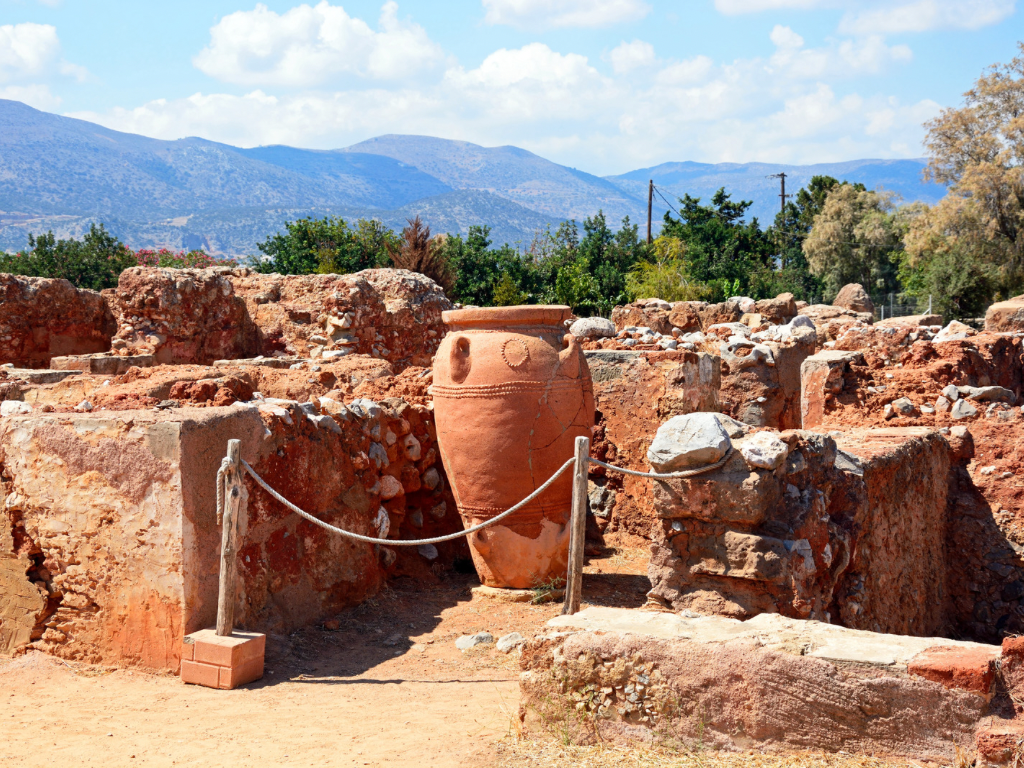Minoan cusine: Olive Domestication
Hey folks! It's Erik Vigil here, and I'm excited to take you on a journey back in time to the earliest evidence of olive domestication and olive oil extraction - around 4500-3500 BCE. The Mediterranean was a vastly different place back then, but the taste and versatility of the olive would be just as familiar to us now as it was to our ancient ancestors.
The olive was a game-changer for early humans - a delicious and nutritious food that could be stored for long periods of time, and even traded for other goods. But it wasn't until the cultivation and extraction of olive oil that the full potential of this versatile fruit was realized.
Let's start our journey in the hills of modern-day Syria, where archeologists have uncovered evidence of clay pots called "qalas," which were used to store olives. These discoveries provide us with the earliest evidence of olive cultivation.
The cultivation of the olive tree required patience and skill, and the ancient people who first grew it would have known how to coax the best flavors out of their crops. The process of harvesting the olives was a time-consuming and laborious one, but the reward was a delicious and nutritious food that could be eaten raw, pickled, or pressed into oil.
Moving westward, we come to the island of Crete, which was a center of Minoan civilization during this time period. Here, we find evidence of olive oil extraction, which was a crucial part of the Minoan diet and economy.
To get a better understanding of this ancient process, Minoan olive grove, where local farmers still use some of the same techniques that were used thousands of years ago. The first step in olive oil extraction is harvesting the olives, and witnessing the farmers climb ladders and shake the branches, working hard to get every last fruit from the trees.
Once the olives were harvested, they were taken to a nearby mill where they were crushed into a paste. In ancient times, this was done by hand using large stones, but today, most farmers use a mechanical press. As the olives are pressed, their oil is separated from the pulp and collected in large jars.
Fresh olive oil has a unique, fruity flavor and a bright green color that's highly valued by food enthusiasts around the world. It can be used in cooking, as a dressing for salads, and even as a cosmetic.
We started to experiment with Minoan Cusine, with a simple but delicious salad of ripe tomatoes, crisp red onions, tangy feta cheese, and freshly torn herbs, all drizzled with a generous amount of olive oil. The oil brought out the sweetness of the tomatoes and added a rich, buttery flavor to the cheese.
Next, we tried a dish of grilled octopus, which had been marinated in olive oil and lemon juice. The oil added a smoky, earthy flavor to the tender, charred octopus, and the lemon juice gave it a bright, zesty kick.
As we savored each bite of these ancient flavors, it was clear that olive oil was a vital ingredient in Minoan cuisine. But it was also much more than that - it was a symbol of wealth and status.
In ancient times, olive oil was not just a food, but a commodity that could be traded for other goods. The production and trade of olive oil allowed for the growth of a prosperous economy in the Mediterranean region, and its importance in the diet of the Minoan civilization is a testament to the power of food in shaping our world.
As we finished our meal and toasted to the ancient farmers who first cultivated and pressed olives, it was clear that the impact of this little fruit has been felt for thousands of years.
But the story of olive oil doesn't end with the Minoan civilization. The Greeks and Romans also recognized the value of this precious oil, and it played a vital role in their societies as well.
For the Greeks, olive oil was a symbol of prosperity and health, and they even used it as a reward for Olympic athletes. In ancient Rome, olive oil was used for cooking, lighting lamps, and even as a medicine.
As the popularity of olive oil spread throughout the Mediterranean, so did the methods for its cultivation and extraction. The use of mechanical presses and other innovations made the process more efficient, and allowed for even more production and trade.
Today, olive oil is still a vital ingredient in Mediterranean cuisine, and is highly valued for its health benefits and unique flavor. In fact, many of the same techniques used by ancient farmers are still used today to produce high-quality olive oil.
As I reflect on the history and importance of olive oil, I can't help but feel a sense of awe and wonder. This simple fruit has had such a profound impact on human society, and its legacy continues to this day.
So next time you enjoy a salad, grill up some fresh fish, or dip a piece of bread in some high-quality olive oil, take a moment to appreciate the rich history and tradition that comes with each drop.
Thanks for joining me on this journey through time, and I hope you'll join me for more adventures in food and history in the future.






